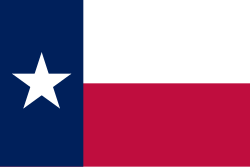| Texas Parks and Wildlife Department Texas | |
|---|---|
 | |
 Official Texas Game Warden Badge | |
 Flag of the State of Texas | |
| Agency overview | |
| Formed | 1963 |
| Preceding agencies |
|
| Jurisdictional structure | |
| Operations jurisdiction | Texas, U.S. |
 | |
| Map of Texas Parks and Wildlife Department's jurisdiction | |
| Size | 268,820 square miles (696,240 km2) |
| Population | 27,469,114 (2015 est.) [1] |
| General nature | |
| Operational structure | |
| Headquarters | Austin, Texas, United States |
| Game Wardens | 493 [2] |
| Park Police Officers | 170 [2] |
| Agency executive |
|
| Website | |
| tpwd | |


The Texas Parks & Wildlife Department (TPWD) is a Texas state agency that oversees and protects wildlife and their habitats. In addition, the agency is responsible for managing the state's parks and historical areas. Its mission is to manage and conserve the natural and cultural resources of Texas and to provide hunting, fishing, and outdoor recreation opportunities for the use and enjoyment of present and future generations. [4]
Contents
- History
- Budget and staff
- Organization
- Outreach
- Magazine
- Television programs
- Radio program and podcast
- Texas Parks and Wildlife Foundation
- See also
- References
- External links
The agency maintains its headquarters at 4200 Smith School Road in Austin, Texas. [5] [6] [7]
